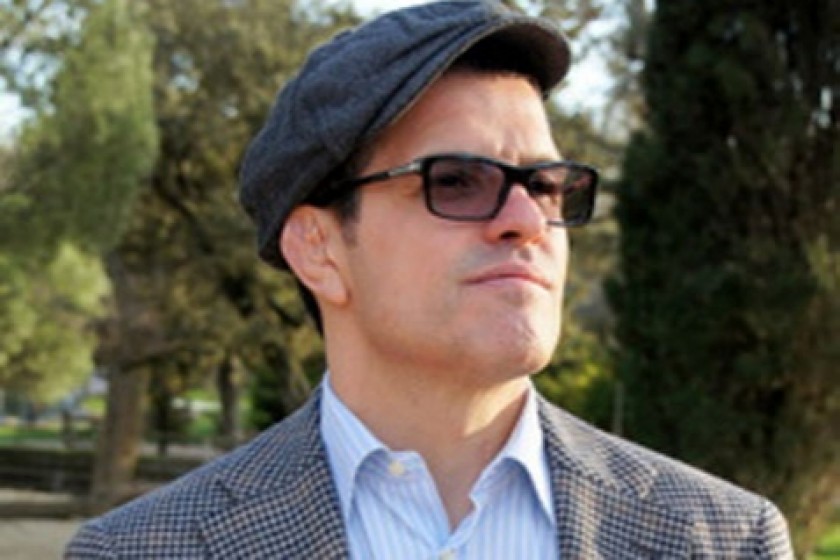
Bulgaria: Alleged ‘Cocaine King’ Makes Surprise Court Appearance, Dispels Rumors He Fled Justice
By Maria Guineva in Sofia
Bulgaria’s alleged ‘Cocaine King’ Evelin Banev, alias Brendo, has made a surprising appearance in a Sofia courtroom, dispelling media reports that he had left the country.
After going missing for a year and a half, Brendo arrived in Sofia Appellate Court on Sept. 28 for the restart of the € 12.5 million (US$ 14 million) money laundering case against him and three other people.
The hearing was quickly postponed in order to find and bring to the witness stand another alleged accomplice - Ivaylo Hasselbarth, who has already said during a video interrogation that he did not know Brendo and has never met him.
Hasselbarth’s former wife, Violeta Tsekova, was present. She confirmed to the judges that she did not know any of the defendants.
The next hearing is scheduled for Nov. 18.
Banev is known as Bulgaria's ‘Cocaine King’. The case against him and the other three defendants (a fourth one has since been murdered) dates back to 2007. According to the public prosecutor, they established an organized crime group dealing with illegal drug trafficking from South America to Spain and Italy, while the money was invested in hotels on the Bulgarian Black Sea coast and in other assets.
Brendo was first detained in 2007, shortly before a key witness in the case was shot dead just two days before she was due in court to testify. Brendo was remanded in custody, but was later released under house arrest and finally set free on bail by the end of the same year. Judges justified the ruling by claiming the investigation was not working actively enough with no new evidence collected.
Banev’s most recent arrest in Bulgaria was in May 2012 in an international police operation codenamed ‘Cocaine Kings’. He was detained with 15 other Bulgarians, 12 Italians, one Slovenian, one Romanian, and one Georgian. At that time his 2007 case was still pending with court hearings being postponed at the request of the prosecution.It was brought back to the courtroom in 2010.
Banev was finally sentenced in February 2013 to seven and a half years behind bars. The other three defendants – his ex-wife Monika Dobrinova, her sister Desislava Dishlieva, and his step-brother Simo Karaychev – received three-year suspended sentences with five years’ probation. All four were later exonerated on appeal, but in May 2015, Bulgaria’s Supreme Court of Cassations returned the case for retrial over substantial procedural errors.
Brendo was extradited to Italy in July 2012 to be tried on further drug trafficking charges. At the time he was the subject of an Interpol arrest warrant. One year later, in July 2013, the court in Milan sentenced him to 20 years in prison for participating in an organized crime group dealing with international drug trafficking. After the verdict he was sent to back Bulgaria where he was released on own recognizance with a ban on leaving the country.
In March 2013, Banev's daughter Lara (10 at the time) was kidnapped by three masked men while leaving her mother’s home in Sofia. The men shot her unarmed driver twice in the back. It was reportedly the first kidnapping in Bulgaria since 2009. She was released unharmed in April.
It emerged on Sept. 24 this year that the lawsuit against Banev and several other defendants had been also returned for retrial to the Appellate Court of Milan by Italy's Supreme Court of Cassations, thus annulling the previous 20-year prison sentence.
At the same time, Romanian authorities also launched a bid to extradite Banev to try him for drug trafficking. The request was approved by the Sofia City Court but revoked a year ago by the higher authority - the Sofia Appellate Court.
Rumors and media reports that he had fled the country emerged after Brendo, who unlike other alleged crime figures was known for walking around Sofia without bodyguards, disappeared from the public eye for more than a year.Neither the police and judiciary could confirm or deny the reports or explain how such a disappearance could have taken place while Brendo was under a travel ban.
Brendo’s apparent vanishing came in the wake of the disappearances of several other well-known organized crime defendants. It turned out that he had merely decided to shun the spotlight and has, meanwhile, written and published a spiritual book.
https://www.occrp.org
 Videos
Videos Photos
Photos




Write a comment